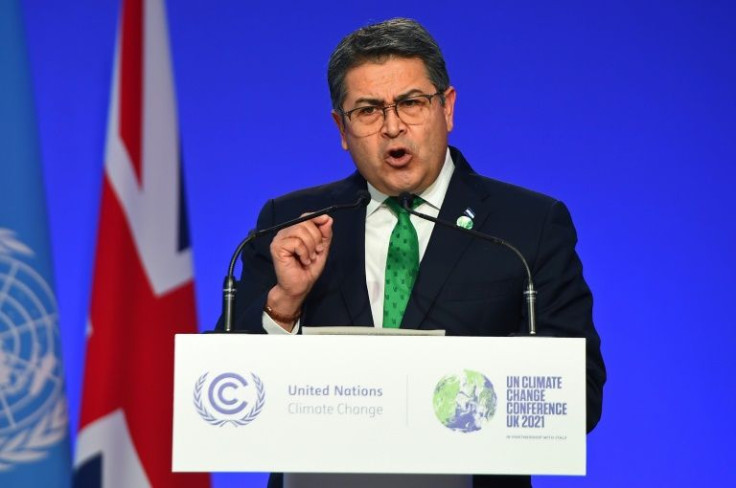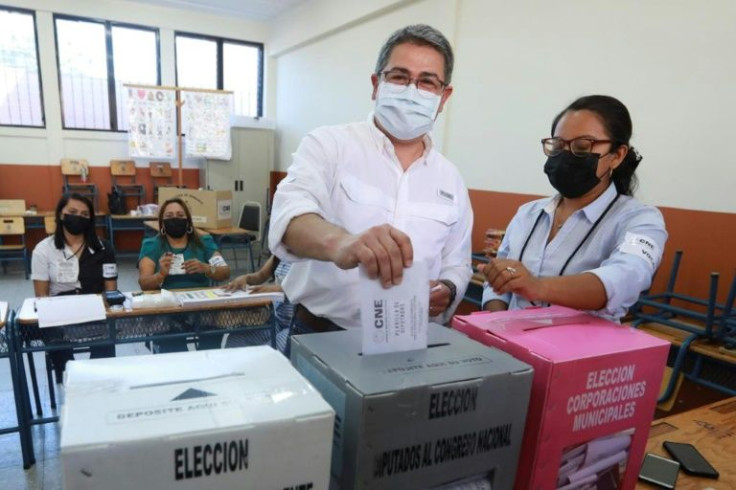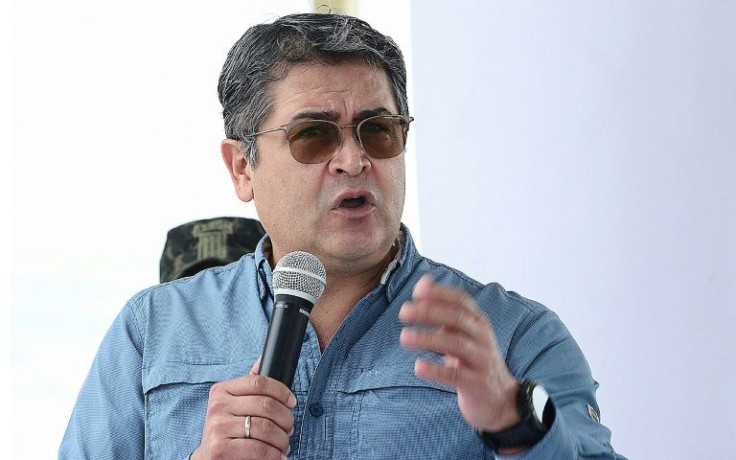High Stakes For Outgoing Honduras President Hernandez
Juan Orlando Hernandez faces an uncertain future when his scandal-marred reign as Honduras president ends in January, along with the immunity from prosecution that the position gave him.
His National Party (PN) presidential candidate Nasry Asfuera has conceded defeat to leftist Xiomara Castro, who will be sworn in as her country's first ever woman president in less than two months.
Hernandez, 53, told AFP earlier this year that he intends to "step away from public life" to write his memoirs.
But US prosecutors have accused Hernandez of protecting drug traffickers in exchange for bribes.
"He's been under investigation since 2004... he runs the risk that (the US) requests his extradition," Ernesto Paz Aguilar, a former foreign minister, told AFP.

His brother Tony, a former PN legislator, is already serving a life sentence in the US for drug trafficking.
"The general rule is that the United States doesn't take any measures against presidents," said Paz Aguilar.
"There's no formal accusation" in the US but "he was mentioned as a co-conspirator in his brother's case," said Reina Rivera, an analyst and human rights defender.
Until recently, the US was a keen and close ally.

While the opposition and international observers questioned Hernandez's 2017 re-election, the US was the first country to congratulate him.
Washington also saluted his efforts to combat drug trafficking and he helped extradite several drug barons to face trial in the US.
But several of them then accused Hernandez of involvement in the illicit trade.
He denies that and insists the accusations are motivated by "revenge."
Should US prosecutors launch a case, Castro, who branded Hernandez a "narco-dictator", would be unlikely to protect him.
"One way out (from extradition) would be if they open a trial here... when a person has a pending trial in Honduras, they cannot be extradited," said Rivera.

In a case that has since been buried, Honduran prosecutors claimed Hernandez's 2013 election campaign benefited from embezzled funds.
But the opposition has also accused him of corruption linked to the acquisition of infrastructure and supplies to fight the coronavirus pandemic.
Hondurans don't expect Hernandez to face trial, either at home or abroad.
"If he committed crimes he has to pay for it," said Kenia Maldonado, 32, a street vendor.
"The problem is that here there are no laws, no-one can do anything to him here. There are laws for the poor but not for the rich."
Oscar Edmundo Arzu, 59, does not think Hernandez will be extradited.
"How could he not realize what his brother was involved in? But if the gringos (US) had sufficient evidence against him, they would already have asked for his extradition," he told AFP in central Tegucigalpa.
Another option for Hernandez would be to flee into exile, away from the reach of either Honduran or US justice "but his options are limited," said Michael Shifter, president of the Inter-American Dialogue.
"He is toxic and surely would be unwelcome in most countries."
There is one place that he would likely find a safe haven.
"The strong relationship that Hernandez has with (Nicaragua President) Daniel Ortega could mean an escape from his complicated legal situation," said Gustavo Irias, executive director of the Center for Democracy Studies.
Ortega is a pariah in Washington's eyes and the two countries have no diplomatic relations.
Hernandez's first foreign visit after he was elected was to see Ortega and should he go there, he wouldn't be alone.
"There is precedent in two former El Salvador presidents that were given a Nicaraguan refuge having been accused of corruption: Mauricio Funes and Salvador Sanchez Ceren," added Irias.
Nicaragua granted Sanchez Ceren citizenship in July, having already done so for Funes in 2019, meaning neither can be extradited to El Salvador to face charges.
"The realistic option is Nicaragua, it's one the gringos would probably accept," said Paz Aguilar.
© Copyright AFP {{Year}}. All rights reserved.





















